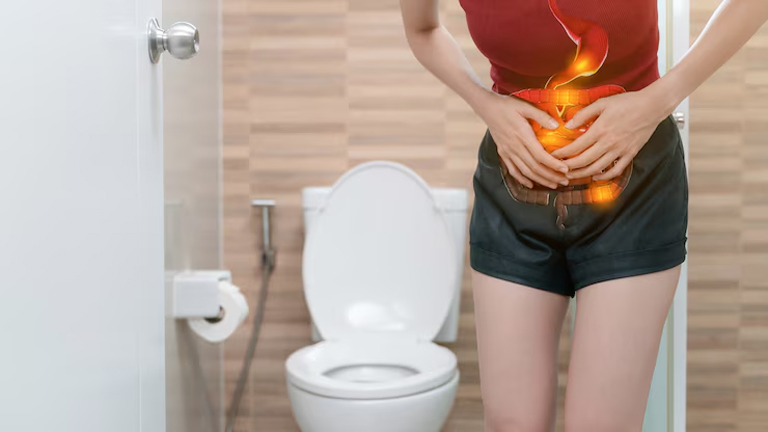Diarrhea is a common digestive issue that affects people of all ages. Whether it’s acute or chronic, understanding the diarrhea cause is crucial for effective treatment and prevention. In this comprehensive guide, we’ll explore the various diarrhea causes, symptoms, home remedies, and medical treatments to help you manage this uncomfortable condition.
Must Check: Insomnia Symptoms
What is Diarrhea?
Diarrhea is characterized by frequent, loose, or watery stool, often accompanied by abdominal cramps, bloating, and urgency. While most cases resolve within a few days, persistent diarrhea may indicate an underlying health issue.
Common Diarrhea Causes
Several factors can trigger diarrhea, including:
1. Infections (Viral, Bacterial, or Parasitic)
-
Viruses: Norovirus, rotavirus, and adenovirus are common culprits.
-
Bacteria: E. coli, Salmonella, and Shigella can cause food poisoning.
-
Parasites: Giardia and Cryptosporidium lead to prolonged diarrhea.
2. Food Intolerances & Allergies
-
Lactose intolerance (inability to digest dairy).
-
Gluten sensitivity (celiac disease).
-
Artificial sweeteners (sorbitol, mannitol).
3. Medications & Supplements
-
Antibiotics (disrupt gut bacteria balance).
-
Magnesium-containing antacids.
-
Chemotherapy drugs.
4. Digestive Disorders
-
Irritable Bowel Syndrome (IBS).
-
Inflammatory Bowel Disease (IBD – Crohn’s, Ulcerative Colitis).
-
Small Intestinal Bacterial Overgrowth (SIBO).
5. Chronic Diarrhea Causes
-
Endocrine disorders (hyperthyroidism, diabetes).
-
Pancreatic insufficiency.
-
Colon cancer (rare but serious).
Symptoms Associated with Diarrhea
Besides watery stool, diarrhea may cause:
-
Abdominal pain & cramping
-
Nausea & vomiting
-
Fever & chills (if infection is present)
-
Dehydration (dry mouth, dizziness, reduced urine output)
Diarrhea: Causes, Symptoms & Treatments at a Glance
| Aspect | Details |
|---|---|
| Main Types | Acute (short-term), Chronic (long-term), Traveler’s diarrhea |
| Common Causes | Viruses (Norovirus), Bacteria (E. coli), Parasites, Food intolerance, IBS, Medications (antibiotics) |
| Key Symptoms | Watery stools, Abdominal cramps, Urgency, Fever (if infection), Dehydration signs (dry mouth, dizziness) |
| Severe Signs | Blood in stool, High fever (>102°F), Signs of dehydration, Duration >48 hours |
| Best Treatments | Oral rehydration (ORS), BRAT diet, Probiotics, Zinc supplements, Loperamide (for adults only) |
| Foods to Eat | Bananas, White rice, Applesauce, Toast, Boiled potatoes, Oatmeal |
| Foods to Avoid | Dairy, Fatty foods, Spicy foods, Caffeine, Alcohol, Artificial sweeteners |
| Prevention | Hand washing, Safe food handling, Clean water, Rotavirus vaccine (for babies) |
| When to See Doctor | Bloody stools, Severe dehydration, Symptoms lasting >2 days (adults) or >24 hours (children), Recent antibiotics use |
Key Variations by Age Group
| Age Group | Special Considerations |
|---|---|
| Infants | Higher dehydration risk, Rotavirus common, Use pediatric ORS, Seek help if no wet diaper in 8 hours |
| Children | More vulnerable to dehydration, Monitor urine output, Avoid anti-diarrheal medications unless prescribed |
| Adults | Can use OTC meds cautiously, Watch for medication side effects, Alcohol worsens symptoms |
| Elderly | Higher complication risk, Monitor electrolytes, May need earlier medical intervention |
Diarrhea Treatment: Medical & Home Remedies
Medical Treatments
-
Antibiotics (for bacterial infections).
-
Antidiarrheal medications (Loperamide, Bismuth subsalicylate).
-
Probiotics (restore gut bacteria balance).
Home Remedies for Diarrhea
-
BRAT Diet (Bananas, Rice, Applesauce, Toast) – Easy-to-digest foods.
-
Hydration (Oral rehydration solutions, coconut water).
-
Ginger & Peppermint Tea (Soothe digestion).
-
Avoid Dairy & Fatty Foods (Aggravate diarrhea).
Preventing Diarrhea
-
Wash hands frequently.
-
Drink clean, filtered water.
-
Avoid undercooked meat & unpasteurized dairy.
-
Manage stress (triggers IBS-related diarrhea).
When to See a Doctor
Seek medical attention if you experience:
-
Blood or pus in stool.
-
Severe dehydration (sunken eyes, rapid heartbeat).
-
Diarrhea lasting more than 48 hours (or 24 hours in children).
Conclusion
Understanding the diarrhea cause helps in choosing the right diarrhea treatment and prevention methods. While most cases resolve with home care, chronic or severe diarrhea requires medical intervention. Stay hydrated, follow a BRAT diet, and practice good hygiene to reduce risks.
By addressing diarrhea causes and symptoms early, you can recover faster and maintain optimal digestive health.


